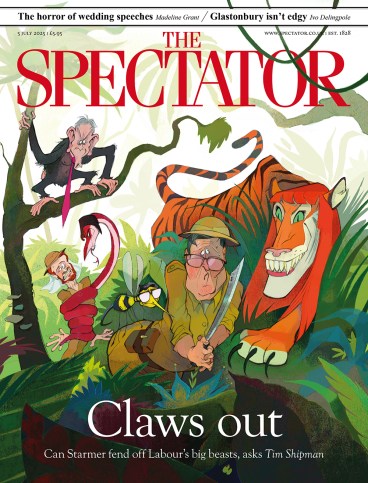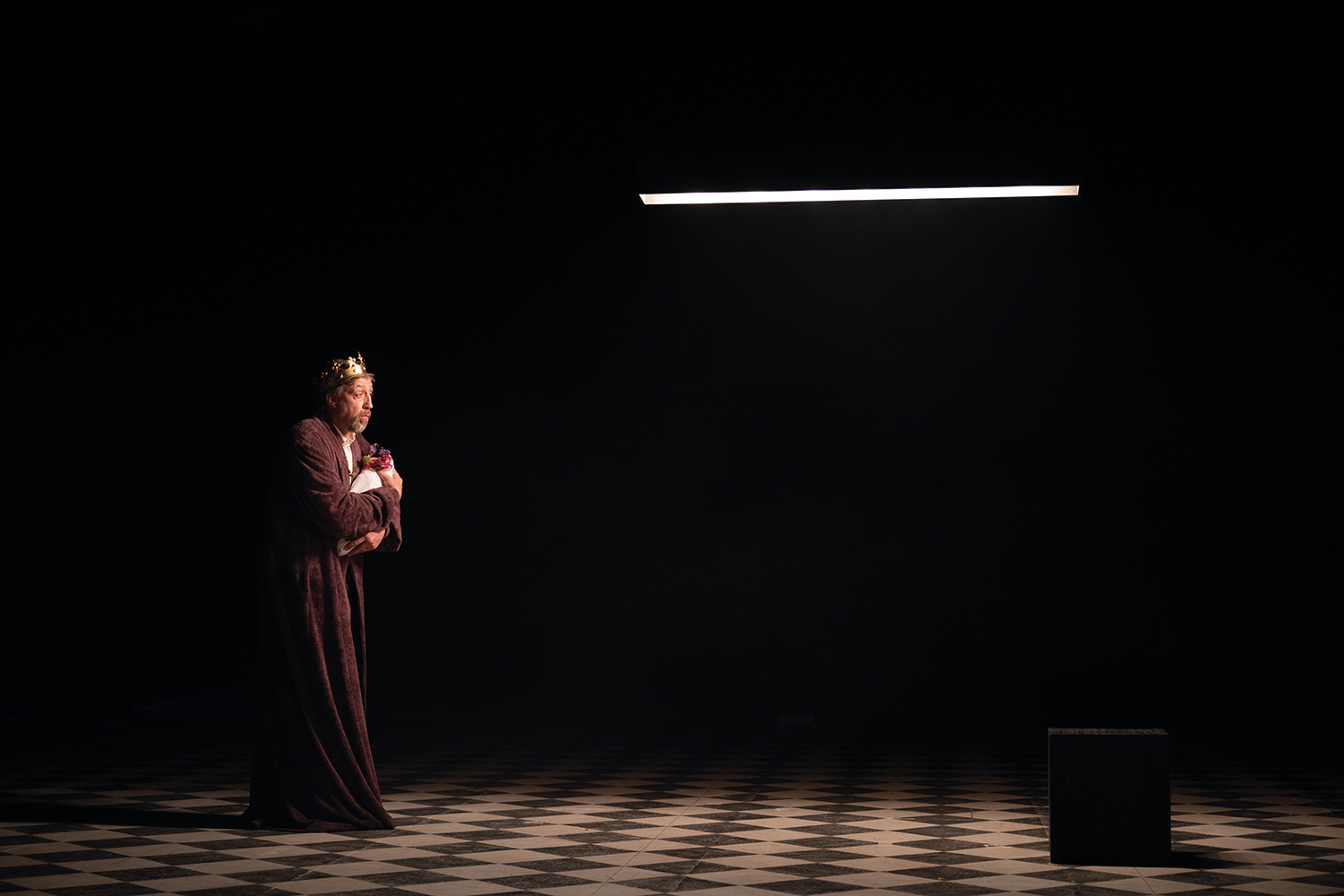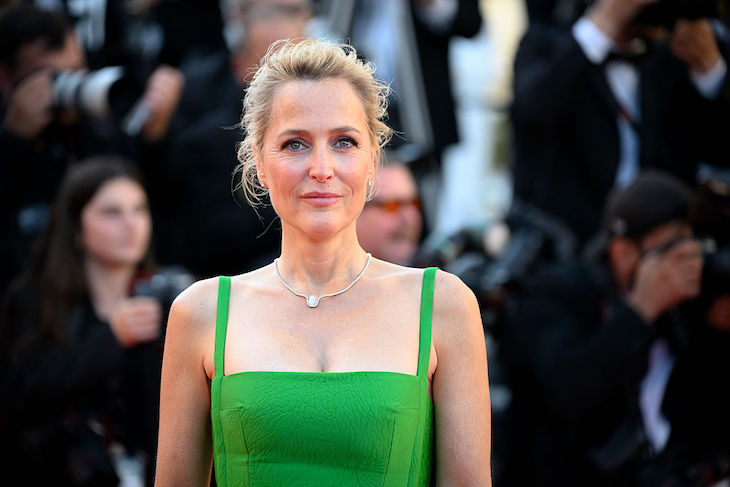
King Arkel, in Debussy’s Pelléas et Mélisande, is almost blind, and he rules over a kingdom of darkness. Debussy’s score is so luminous that it’s easy to forget just how dark it supposedly is, this mythical realm of Allemonde – even despite the libretto’s references to gloomy caves, shadowy castles and forests that block out the sunlight. Many productions take their visual cues from the music rather than the words, providing endless opportunity for shimmering effects and the subtle play of light and shade.
Jenny Ogilvie’s staging for Longborough Festival Opera doesn’t just embrace the darkness; it goes all in. Shadows texture the huge, brutalist wall of Arkel’s castle and occasionally – briefly – it’s pierced by shafts of sunlight. But the visual default here is inky blackness, in which occasional points of light are almost characters in their own right. A single lightbulb darts about like a moth; a fluorescent bar makes a foil sheet glitter like water. Occasional low washes catch faces in profile and turn the scene icy-blue, or flood it with soft gold as the two lovers accept their destiny.
It’s a hugely impressive achievement; one of a growing list of recent opera productions in which the lighting designer (here, Peter Small) makes the running. Still, gloom has its drawbacks. I was sitting five rows back from the orchestra, and even there the mystery sometimes felt a little too profound. How it came across to visually impaired audience members, I wouldn’t like to guess.
On the other hand, the Longborough auditorium is so compact that no one is very far from the performers, and there are huge benefits in staging a lush, late-romantic opera in a venue where both orchestra and cast can whisper or roar without inhibition. As Pelléas, Karim Sulayman was practically conversational, in a role usually sung by a rather heavier voice. He barely needed to project at all – the embodiment of openness against Brett Polegato’s tormented, slow-burn Golaud. As a lover, Sulayman made a desperately naive counterpart to Kateryna Kasper, a Mélisande who gave nothing away.
And I mean nothing. Dressed like some Singer Sargent heiress, with a face that flickered between radiance and china-doll blankness, Kasper was as enigmatic (and as compelling) as Debussy and Maeterlinck surely intended. Bell-like and bright at volume, she placed her quieter phrases gently into the silence – a sonic equivalent of those solitary light sources, throwing the surrounding performances into powerful relief. She was especially potent alongside Julian Close’s Arkel, a role that feels even more tragic when the old King is as compassionate, and as majestically sung, as he was here
The conductor was LFO’s Wagnerian-in-chief Anthony Negus, a master of intimacy coupled to long-range command. In this venue you can really feel the grain of the orchestra, and Negus stretched velvet expanses of shadowy sound between sudden, flashing glimpses of ecstasy – moments when the orchestra was as agile (and as soft) on its feet as a cat. True, not everything in Ogilvie’s production worked, and in the last scene – with the dying Mélisande encased in a Damien Hirst fishtank – you could practically hear the collective ‘eh?’ from the audience. But by then, a spell had been cast. There’s an authority and assurance about this Pelléas that feels like a company stepping up to the next artistic level. It was brave, and – at its best – very beautiful indeed.
It was brave, and – at its best – very beautiful indeed
Grange Park Opera also deserves points for courage; its new production of Tchaikovsky’s Mazeppa delivers a brutal torture scene immediately before the picnic break. Big respect, too, for the way that GPO has given director David Pountney a platform for his ongoing love affair with the Slavic operas that no one else will touch. Mazeppa was a Ukrainian Cossack leader who rebelled against Peter the Great, but Pountney avoids overt point-making, which is probably wise. A couple of years back an opera at Grange Park featured a simulated storming of the theatre by Vladimir Putin’s Spetsnatz. Impressive, but giving your audience heart attacks is not a sustainable business model.
Anyway, the setting – a generic modern war zone – is vividly realised; the singing sounds admirably Eastern Bloc and Pountney does his best to energise the story, presenting Mazeppa (David Stout) as a hairy biker and his child bride Mariya (Rachel Nicholls, who can do melancholy as well as cold steel) as a sort of groupie.
The main problem is Tchaikovsky, who can’t decide whether Mazeppa is hero or monster, and never quite gets a grip on his material. A string of extended lyrical soliloquies and duets works a treat when you’re adapting Eugene Onegin, but it’s less effective when your story climaxes with the Battle of Poltava. Still Mazeppa is a bucket-list opera for Slavophiles, and for the foreseeable future we’re unlikely to see it done better. Or, to be honest, at all.
Join Richard Bratby in the Spectator boardroom for another in our series of Spectator Writers’ Dinners, Thursday 17 July, 7-10 p.m. Go to spectator.co.uk/tastings to book.








Comments